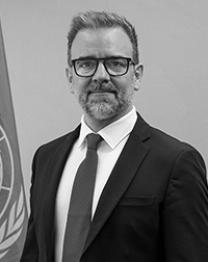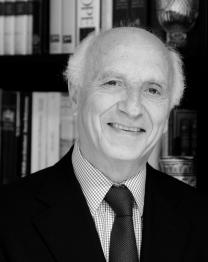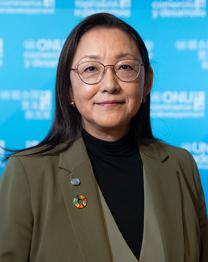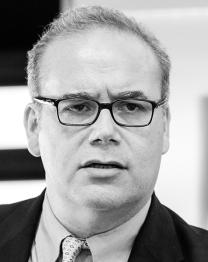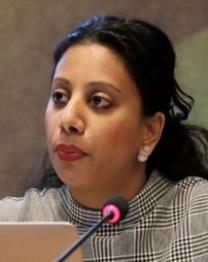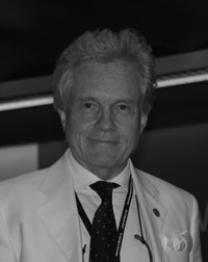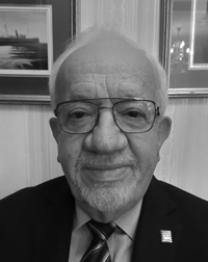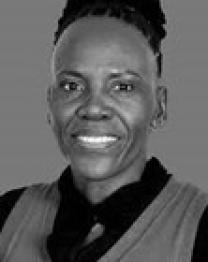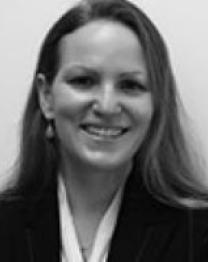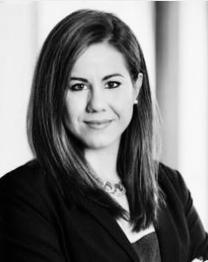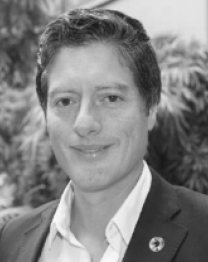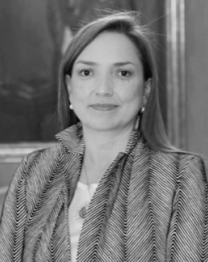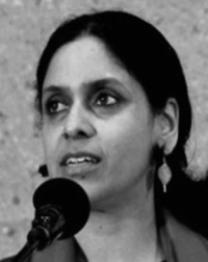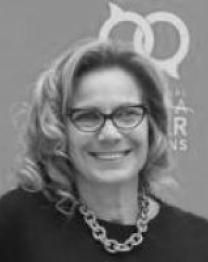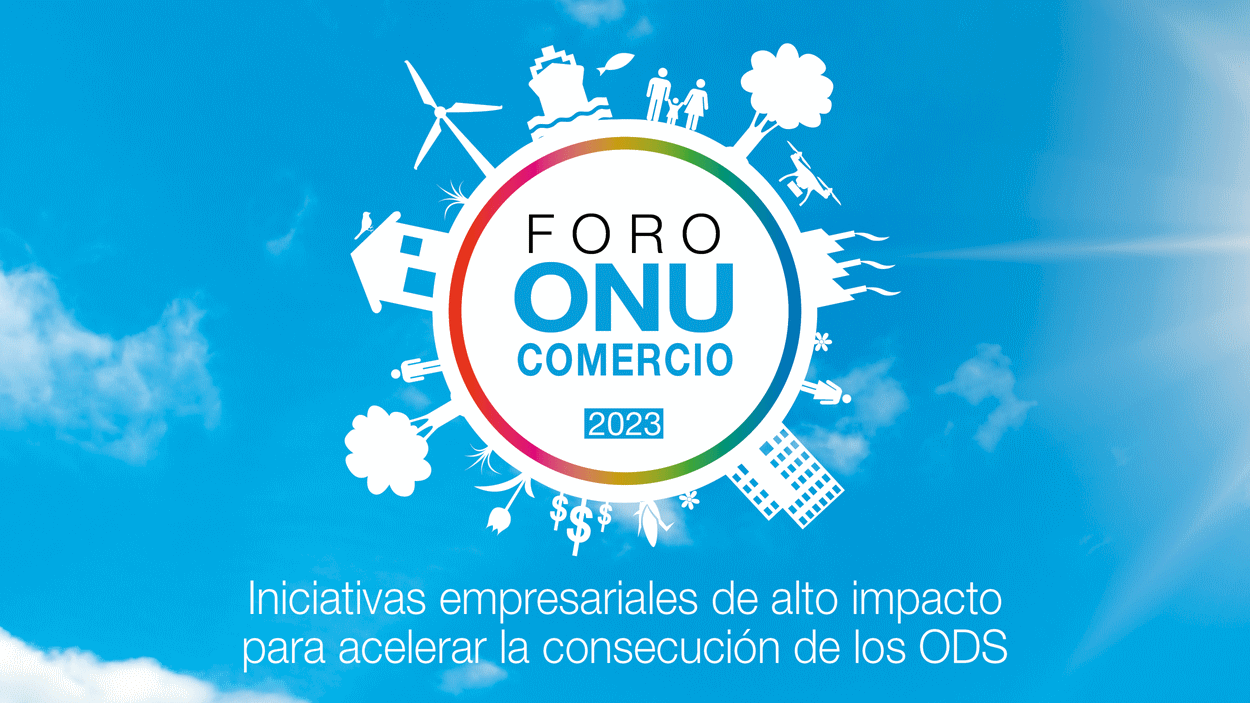
Iniciativas empresariales de alto impacto para acelerar la consecución de los ODS
Iniciativas empresariales de alto impacto para acelerar la consecución de los ODS
La UNCTAD acogerá la tercera edición del Foro de Comercio de las Naciones Unidas para hacer un balance de las políticas comerciales más adecuadas a los desafíos que enfrenta el mundo. Los debates se centrarán en enfoques que harán que los sistemas comerciales sean más resistentes, en particular en los países en desarrollo, aclararán la eficacia y la viabilidad de un conjunto de iniciativas comerciales de alto impacto para responder a los desafíos globales y acelerar el progreso hacia el logro de los ODS.
Este evento proporciona una plataforma para identificar marcos de cooperación para contribuir a la Cumbre de los ODS de 2023 (septiembre de 2023), la COP 28 de la CMNUCC (noviembre de 2023) y la 13.ª Conferencia Ministerial de la OMC (principios de 2024). El Foro también sentará las bases para las celebraciones de UNCTAD@60 en 2024.
El Foro ONU Comercio 2023 se organizará en cuatro sesiones plenarias:
Sesión 1: La cooperación comercial Sur-Sur para acelerar la consecución de los ODS
El Sistema Global de Preferencias Comerciales entre Países en Desarrollo (SGPC) es un marco de asociación único para la cooperación comercial Sur-Sur. Surgió del deseo de los países en desarrollo de estimular el comercio entre ellos. Ahora tenemos una nueva oportunidad para romper el estancamiento en la aplicación de los resultados de las negociaciones previas y avanzar para embarcarnos en una nueva agenda comercial Sur-Sur. En el contexto actual de "policrisis", el SGPC ofrece un vehículo para abordar los apremiantes retos mundiales a través de la cooperación comercial con el fin de acelerar la consecución de los ODS. ¿Cuál es el papel del comercio Sur-Sur en el camino hacia el desarrollo sostenible? ¿Cómo puede utilizarse mejor el SGPC para permitir una mayor integración comercial y económica entre los países en desarrollo? ¿En qué ámbitos o sectores políticos puede reforzarse la cooperación comercial para apoyar la consecución de los ODS?
Sesión 2: Construcción de una economía oceánica sostenible para el desarrollo
Lanzamiento del Reporte de Comercio y Medio Ambiente 2023
En 2022, se adoptó una hoja la ruta política "nuestro océano, nuestro futuro, nuestra responsabilidad" en la Conferencia de las Naciones Unidas sobre los Océanos en Lisboa en julio de 2022. Además, se hizo un llamado a un “Acuerdo Azul” para los aspectos relacionados con el Comercio del Objetivo de Desarrollo Sostenible 14 en el 4º Foro de las Naciones Unidas sobre los Océanos en Ginebra el mismo año.
La economía oceánica, y en particular el sector de alimentos azules se vio notablemente afectado por la pandemia de COVID-19 y aún se ve afectado por la guerra en Ucrania.
El Reporte de Comercio y Medio Ambiente 2023: "Construyendo una economía oceánica sostenible" examina y proporciona un análisis de varios temas emergentes, incluidos los sectores de pesca, acuicultura y algas marinas sostenibles como palancas para una recuperación económica sostenible; la reforma de las subvenciones a la pesca y medidas no arancelarias; la descarbonización del transporte marítimo y las cadenas de suministro marítimo; y el desafío de la basura plástica de impacto en la red alimentaria. El reporte identifica las principales oportunidades y desafíos de la economía oceánica hoy en día, y concluye ofreciendo una lista de recomendaciones políticas practicas orientadas a la acción más allá del objetivo 2030.
El fomento del Consumo y la Producción Responsables, plasmado en el Objetivo de Desarrollo Sostenible 12 (ODS 12), es fundamental para el desarrollo sostenible y constituye una prioridad crítica a nivel internacional, tal como lo destaca el reciente informe de la Conferencia de las Naciones Unidas sobre Comercio y Desarrollo (UNCTAD) titulado Políticas de Competencia y Protección del Consumidor para la Sostenibilidad. Para alcanzar el ODS 12, se requiere la adopción de patrones de producción y consumo sostenibles que minimicen los impactos ambientales, promuevan la eficiencia en el uso de los recursos y reduzcan la generación de residuos.
En este contexto, el papel que desempeñan las políticas de competencia y protección del consumidor en la promoción del consumo y la producción sostenibles ha recibido una atención creciente en los últimos años. En esta sesión, se aborda la necesidad urgente de avanzar hacia un consumo sostenible y se exploran las contribuciones que las políticas de competencia y protección al consumidor pueden hacer para alcanzar el ODS 12. Asimismo, se identifican oportunidades para avanzar hacia el consumo y la producción sostenibles.
Sesión 4: Brechas de género y soluciones digitales
La digitalización tiene el potencial de mejorar la productividad, la sostenibilidad y la resiliencia en muchos sectores económicos.
Las tecnologías digitales pueden ampliar el acceso a la información y a nuevos mercados, así como facilitar la integración de los pequeños empresarios en las cadenas de valor nacionales y regionales.
Sin embargo, el potencial de las tecnologías digitales para mejorar la productividad y el comercio se ve limitado por las brechas de género en la adopción y el uso de la tecnología. La UNCTAD ha explorado los beneficios, así como los retos, del comercio electrónico para las pequeñas empresas dirigidas por mujeres en los países en desarrollo y en los países menos adelantados en su nuevo informe “El comercio electrónico desde una perspectiva de género y desarrollo”.
El lanzamiento de la publicación brindará la oportunidad de entablar un debate sobre estos temas: ¿Cuáles son las intervenciones necesarias para garantizar que los beneficios de las tecnologías digitales se compartan de manera equitativa y que tengan en cuenta las cuestiones de género? ¿Qué tipos de plataformas digitales están más adaptadas a los negocios dirigidos por las mujeres? ¿Existe alguna similitud entre el debate sobre comercio y género y el debate sobre digitalización y género? ¿Cuáles son las iniciativas prometedoras en este ámbito? ¿Qué papel debería desempeñar la UNCTAD?
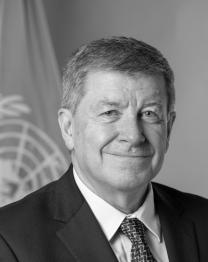
United Nations Secretary-General António Guterres announced on 7 October 2022 the appointment of Guy Ryder of the United Kingdom as Under-Secretary-General for Policy in his Executive Office. He will succeed Volker Türk of Austria who has been appointed as United Nations High Commissioner for Human Rights.
Mr. Ryder was most recently Director-General of the International Labour Organization (ILO) in Geneva after serving two successive terms since October 2012. He first joined the ILO in 1998 as Director of the Bureau for Workers’ Activities and from 1999, served as Director of the Office of the Director-General.
Mr. Ryder started his professional career in 1981 as an assistant at the International Department of the Trades Union Congress in London. From 1985, he held the position of Secretary of the Industry Trade Section of the International Federation of Commercial, Clerical, Professional and Technical Employees (FIET) in Geneva. In 1988, he became Assistant Director and – from 1993 - Director of the Geneva office of the International Confederation of Free Trade Unions (ICFTU). In 2002, he was appointed General Secretary of the ICFTU and was elected as the first General Secretary of the International Trade Union Confederation (ITUC) when it was created in 2006. He returned to the ILO in 2010 as Executive Director, responsible for international labour standards and fundamental principles and rights at work.
Mr. Ryder studied Social and Political Sciences at the University of Cambridge and Latin American Studies at the University of Liverpool. He speaks English, French and Spanish.
Mr. Pedro Manuel Moreno of Spain, is Deputy Secretary-General of UNCTAD.
He has over 20 years of experience of working for multilateral and intergovernmental organizations in programme, management and strategic positions both in the field and at headquarters.
He was Deputy Secretary-General of the Communication for Development Committee at the Spanish National Commission with the United Nations Educational, Scientific and Cultural Organization (1999-2004), and for the United Nations Development Programme, at the Country Office in Ecuador and, in New York City, as part of the Human Development Report team, at the Regional Bureau for Latin America and the Caribbean and at the Executive Office.
In 2014, he was appointed Chief of Staff of the Ibero-American Conference in Madrid, where he coordinated key political processes and South-South cooperation projects.
In September 2021, he was named Chief of Staff and Director of the Office of the Secretary-General of UNCTAD.
Rubens Ricupero, currently in charge of the José Bonifácio Chair of Ibero-American Studies at the University of São Paulo, was from l995 to 2004, the Secretary-General of the United Nations Conference on Trade and Development (UNCTAD), in Geneva. Before that, he had been Minister of Finance of Brazil (1994), succeeding Fernando Henrique Cardoso. In 1993-94, Rubens Ricupero was Brazil’s Minister of the Environment and Amazonian Affairs, an area where he had accumulated experience as the Chairman of the Negotiation Group on Finance, during the United Nations Conference on Environment and Development, the Rio Climate Summit, in 1992, in Rio de Janeiro.
For several decades, he has been associated with international trade negotiations, as the chief Brazilian negotiator during most of the duration of the Uruguay Round of the GATT (1987-1991).
In Presidents Tancredo Neves-José Sarney’s Administration, he was Deputy-Chief of the Presidential staff and Special Adviser to the President (1985-1987).
For 36 years, he was a career diplomat, reaching the posts of Secretary for Inter-American Affairs, at Brazil’s Ministry of Foreign Relations.
He represented Brazil as Ambassador at the GATT and the United Nations Organization, Geneva (1987-1991), Ambassador to the United States of America (1991-1993) and Ambassador to Italy (1995).
Rubens Ricupero was born in São Paulo on March 1st, 1937, and he studied Law at the University of São Paulo. He was a Professor of Theory of International Relations at the University of Brasilia and of History of Brazilian Diplomatic Relations at the Rio Branco Institute, the Brazilian Diplomatic Academy. He published several books and articles on international trade, development issues and international relations. His most recent book is A Diplomacia na Construção do Brasil 1750-2016 (2017), a history of Brazilian diplomacy and foreign policy, awarded the José Ermirio de Moraes Prize by the Brazilian Academy of Letters.
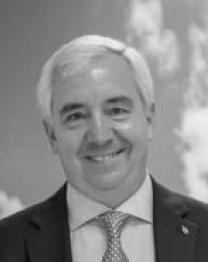
Federico Villegas is the Permanent Representative of Argentina to the United Nations Office at Geneva, since 2020. Prior to his arrival in Geneva, Mr. Villegas had been serving as Argentina’s Ambassador to Mozambique until 2016. He served as the Director General of Human Rights at the Ministry of Foreign Affairs of Argentina from 2012 to 2016, and from 2005 to 2007. He was Argentina’s Alternate Representative to the Southern Common Market MERCOSUR and the Association for Latin-American Integration ALADI in Montevideo, Uruguay from 2008 to 2011.
A career diplomat, Mr. Villegas joined Argentina's Foreign Service in 1993. He was Deputy Director General of Human Rights at the Ministry in 2003 and 2004, and Argentina’s Alternate Representative to the Organization of American States in Washington DC from 1995 to 2003. He also served at the Directorate of International Security, Nuclear and Space Affairs at the Ministry of Foreign Affairs from 1993 to 1995.
Mr. Villegas has a Master of Arts in liberal studies from Georgetown University, Washington DC (1998). He graduated as a lawyer from the National University of Rosario in Santa Fe, Argentina (1989). He also attended an intensive programme for human rights at New College, Oxford University, United Kingdom (1999), and has a human rights diploma from the International Institute of Human Rights, Strasbourg, France (2001). He was born in Santiago del Estero, Argentina on 24 March 1966. He is married with two children.
Miho Shirotori is the Head of the Trading Systems, Services and Creative Economy Branch in UNCTAD's Division on International Trade and Commodities.
She leads a team of experts assessing pathways to improve the developmental impact of trade by negotiating and implementing trade agreements, strengthening policy-making capacity in services trade, and promoting the creative economy to achieve more inclusive economic diversification.
Miho's own expertise includes the development impacts assessment of preferential market access for developing countries, most notably the Generalized System of Preferences (GSP).
Miho has been contributing her technical and institutional knowledge to support UN Member States in shaping decisions to promote more equitable trade across multilateral, North-South, and South-South trade frameworks.
Miho demonstrates a strong track record of leadership and team management within the international organizational context.
She holds master's degrees in economics (London School of Economics and Political Science, international economics (Graduate Institute of International and Development Studies, Geneva), and public administration (Harvard Kennedy School).
Mr. Maximo Torero Cullen is the Chief Economist of the Food and Agriculture Organization (FAO). He joined the Organization in January 2019 as Assistant Director-General for the Economic and Social Development Department. Prior to joining FAO, he was the World Bank Group Executive Director for Argentina, Bolivia, Chile Paraguay, Peru and Uruguay since November 2016 and before the Bank Mr. Torero led the Division of the Markets, Trade, and Institutions at the International Food Policy Research Institute (IFPRI). His major research work lies mostly in analyzing poverty, inequality, importance of geography and assets (private or public) in explaining poverty, and in policies oriented towards poverty alleviation based on the role played by infrastructure, institutions, and on how technological breakthroughs (or discontinuities) can improve the welfare of households and small farmers. His experience encompasses Latin America, Sub-Saharan Africa, and Asia.
Mr. Torero, a national of Peru, holds a Ph.D. and a Master’s degree in Economics from the University of California, Los Angeles (UCLA), and a Bachelor’s degree in Economics from the University of the Pacific, Lima, Peru. He is a professor on leave at the University of the Pacific, Perú, and an Alexander von Humboldt Fellow at University of Bonn, Germany, and has also published in top journals (QJE, Econometric Theory, AER-Applied Microeconomics, RSTAT, Labor Economics and many other top journals).
Mr. Torero has received in 2000 the Georg Foster Research Fellowship of the Alexander von Humboldt Foundation, won the Award for Outstanding Research on Development given by the Global Development Network, twice, in 2000 and in 2002, and received the Chevalier de l'Ordre du Mérite Agricole in 2014.
Ms. Trudi Hartzenberg is the Executive Director of tralac (Trade Law Centre) based in the Western Cape region of South Africa.
Her research is in the areas of international trade, competition policy, industrial development and Africa's integration agenda. She currently serves on the WTO Chairs Advisory Committee and is a member of the Committee for Development Policy of the United Nations Economic and Social Council (ECOSOC).
Vahini Naidu is the Programme Coordinator of the Trade for Development Programme of the South Centre, an intergovernmental organisation of developing countries that helps developing countries to combine their efforts and expertise to promote their common interests in the international arena. She provides policy analysis and advice on trade policies to developing countries and developing country groupings in Geneva as well as to capitals.
Prior to joining the South Centre, she was an international trade negotiator for the Department of Trade and Industry in South Africa covering SADC, Tripartite FTA, AfCFTA and WTO negotiations. She was a diplomat at the South African Permanent Mission to the WTO in Geneva, Switzerland, and Focal Point and Coordinator of the African Group in the WTO.
She holds a Bachelor of Laws and Master of Commerce Degree.
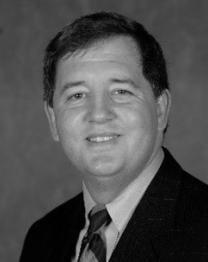
Craig VanGrasstek, according to The Economist (January 22, 2000), “keeps a sharp eye on the politics of trade.” He has been a trade consultant since 1982, and has worked as an analyst, advisor, and trainer in over four dozen countries on five continents. Dr. VanGrasstek’s clients include government agencies, corporations, and international organizations. He received his doctorate in Politics from Princeton University in 1997, and also holds degrees in international relations from Georgetown University’s School of Foreign Service (MSFS, 1983) and the University of Minnesota (BA, 1981). Dr. VanGrasstek has taught international relations at the American University (1994-2001), trade policy at the Harvard Kennedy School (2000-present), and literature at Georgetown University (2006-2009). He wrote the official history of the World Trade Organization (2013), and in 2019 Cambridge University Press published his book on Trade and American Leadership: The Paradoxes of Power and Wealth from Alexander Hamilton to Donald Trump.

Usha Chandnee Dwarka-Canabady is Permanent Representative of the Republic of Mauritius to the United Nations and other International Organizations in Geneva.
Prior to this appointment, Ambassador Dwarka-Canabady was, since November 2015, Secretary for Foreign Affairs of Mauritius, after having been acting Secretary for Foreign Affairs between April 2013 and October 2015. She was also Head of the Multilateral Economic Directorate (January 2007 to March 2013) and Head of the Multilateral Political Department (May 2006-2007) of the Ministry of Foreign Affairs, International Trade and Regional Integration in Port-Louis, Mauritius.
Mrs Dwarka-Canabady has a BA in Psychology, Sociology and English from the University of Leicester, an MA in International Politics from the University Libre of Brussels, and a Diplomatic Studies Program Certificate from the Graduate Institute International Studies in Geneva.
The Rt Hon Patricia Scotland QC is the 6th Commonwealth Secretary-General. She was born in Dominica and was their candidate for the post at the Commonwealth Heads of Government Meeting (CHOGM) in Malta in 2015. She is the 2nd Secretary-General from the Caribbean and the 1st woman to hold the post.
Patricia Scotland was born in the Commonwealth of Dominica. She completed her LLB (Hons) London University at the age of twenty and was called to the Bar at Middle Temple at the age of twenty-one.
Her career has been marked by achieving a number of extraordinary firsts, not least of which was to be the first woman in the more than 700-year history of the office to serve as Her Majesty’s Attorney-General for England and Wales and for Northern Ireland.
While holding these and other senior ministerial offices she was given responsibility, inter alia, for gender equality, domestic violence, forced marriage, and international child abduction, and from these positions promoted diversity and equality of opportunity, particularly for women and girls.
As the only woman to have been appointed Secretary-General of Commonwealth she is placing special emphasis on mobilising the 54 nations of the Commonwealth to tackle climate change – including its disproportionate impact on women – and, through women’s enterprise, to build the resilience of smaller or more vulnerable countries. Eliminating domestic violence and violence against women and girls is another area of focus.
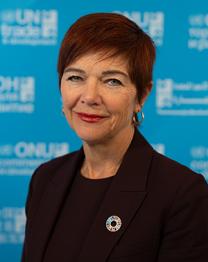
Dr. Carpentier, from Quebec, Canada, is Head of Trade, Environment, Climate change, and Sustainable Development Branch of UNCTAD’s Division on International Trade and Commodities (DTIC). Her work with governments and partners foster green, blue, circular, and impact economies that supported by trade, are key to addressing the triple planetary crisis: climate change, pollution and biodiversity loss. She came to Geneva after leading the UNCTAD New York office, representing the SG and coordinating UNCTAD’s support to inter-governmental negotiations of the UN General Assembly (2015-2023).
She held several other positions. At the UN Department of Economic and Social Affairs, she facilitated the engagement of NGOs, women and youth’s groups, business, local authorities, etc. in the SDGs negotiations and the UN Rio+20 Conference (2011-2015). She also supported the Commission on Sustainable Development research and negotiations on sustainable agriculture and sustainable consumption and production (2007-2011).
Prior to joining the UN, she Headed the North American Free Trade Agreement Commission for Environmental Cooperation’s, Environment, Economy and Trade Division (2000-2007), was Agro-environmental policy analyst for Winrock International (1998-2000) and post-Doctoral fellow/Brazil office manager for the International Food Policy Research Institute (1996-1998).
She has a PhD. in Agro-Environmental Economics from Virginia Tech, as well as a MSc. and BSc. in Agro- Economics from McGill University and is an ironman and ultramarathoner. She is a Yale World Fellow, received the 2023 Schwab Foundation for Social Entrepreneurship public intrapreneur award, and is a UNEP Who’s Who of Women and the Environment.
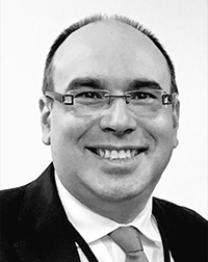
David Vivas Eugui is Chief of Ocean and Circular Economy Unit, a.i., Trade, Environment, Climate Change and Sustainable Development Branch, at UNCTAD.
Previously, he was a Senior Economic Affairs Officer in UNCTAD’s Trade Negotiations and Commercial Diplomacy Branch, Deputy Programmes Director at the International Centre for Trade and Sustainable Development (ICTSD), Senior Attorney at the Center for International Environmental Law (CIEL), Attaché for Legal Affairs at the Mission of Venezuela to the World Trade Organization (WTO) and Staff Attorney at the Venezuelan Institute of Foreign Trade. David is an international expert with more than 20 years of experience on legal and economic issues.
He has worked as an advisor and consultant for various institutions, international and national organizations and has lectured on intellectual property, trade, oceans economy and environmental law at the University of Strasbourg (CEIPI), Universidad de Buenos Aires (Argentina), Universidad Javeriana (Colombia), Maastricht University (the Netherlands), WIPO Distant Learning Academy, and University of Business and International Studies (Switzerland).
He holds a JD from the Universidad Catolica Andres Bello, an LLM from Georgetown University and a Master in Transnational Business from the Universidad Externado de Colombia.
Audun has been with FAO for 25 years, where he is currently the Deputy Director of the Fisheries and Aquaculture Division. Audun was for many years also the Secretary of FAO’s Sub-Committee on Fish Trade (COFI:FT), the main international body for discussion and recommendations on trade and market issues in the sector, as well as the Coordinator of the GLOBEFISH project.
His thematic work areas include aquaculture policy development and management, commodity price trends and price indexes, policy issues related to international trade and market access, market-based instruments, social responsibility, certification, traceability, trade and food security, gender issues, and domestic and regional market development.
Before joining FAO, he worked as an independent agribusiness consultant, project manager at Norway’s Embassy in Italy, and financial analyst on the Oslo Stock Exchange.
Audun has a Ph.D. in Agricultural Sciences from the Sea Fisheries Institute in Poland, a Master’s in Business Administration from Harvard University, and a Bachelor of Arts in Economics from the Norwegian School of Economics.
A former United Nations diplomat with 27 years of experience in the diplomatic service. He served on request as Secretary of the Ministerial meetings of the G77 prior to UNCTAD in Tehran, Havana, Morocco, South Africa and as Secretary of the G77 regional meetings in Bangladesh, Jordan, Lebanon.
He assisted and advised the Government of Qatar in organizing the South Summit in Doha, 2004, and other countless events including the GATES conference in Shanghai and GPA in Beijing.
He has BA in business administration from Mustensiriya University (1968) and a Msc and PhD at the University of Wales (1972-76).
Jérôme Bonnafont is the Permanent Representative of France to the United Nations Office at Geneva since September 2021.
Prior to his appointment in Geneva, Mr. Bonnafont was, since September 2020, working on human resources policies at the Ministry of European and Foreign Affairs, after having been Advisor to the Prime Minister, from January 2020 to July 2020. Previously, between 2015 and 2019, Mr. Bonnafont was the Director of North Africa and the Middle East at the Ministry of European and Foreign Affairs. From 2011 to 2012, he was Chief of Staff to the Minister of State, Minister of Foreign Affairs.
Mr. Bonnafont served as the Ambassador of France to Spain (2012-2015) and to India (2007-2011). He was Counselor at the Permanent Mission of France to the United Nations in New York (1993-1995) and at the Embassy of France in Kuwait (1991-1993), as well as Secretary at the Embassy of France in India (1986-1989).
The Permanent Representative also worked as the Advisor for Global Affairs and the Spokesperson for the Presidency of the Republic (1997-2007), Head of the International Affairs Department of the Ministry of the Environment (1996-1997), and in the Directorate of Legal Affairs at the Ministry of Foreign Affairs (1995-1996).
Born on 8 January 1961, Mr. Bonnafont is a graduate of the Institut d'Etudes Politiques de Paris and the École Nationale d'Administration.
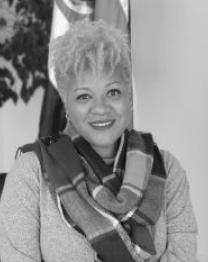
Shara Duncan-Villalobos is Lawyer by profession and career diplomat since 2006. Currently serving as Ambassador Deputy Permanent Representative and Chargée d’Affaires a.i. of Costa Rica to the United Nations Office and other international organizations based in Geneva.
Ambassador Duncan-Villalobos has a Master’s degree in Human Rights and Education for Peace from the Universidad Nacional, Costa Rica. Graduated from the Raphael Lemkin Seminar for the Prevention of Genocide, the Summer Course on Public International Law of the Hague Academy of International Law and the XXIV Interdisciplinary Course on Human Rights of the Inter-American Institute of Human Rights, San José, among others.
She has served as Legal Advisor in the Permanent Mission to the UN in New York, Counsellor in the Netherlands, and Consul in Nicaragua. Within the Ministry she served as coordinator of the Cooperation programs with South America, advisor to the Minister on International Litigation, Advisor to the Vice Minister on Human Rights related issues, and many others.
Ms. Thezi R. Mabuza is currently Deputy Commissioner at the National Consumer Commission after leaving the employment of Department of Trade and Industry as the Chief Director of National Liquor Authority. Previously, she was the senior manager for Skills Development and Administration at the Safety and Security Sector Education and Training Authority (SASSETA). She also held Directorship positions at the Department of Correctional Services responsible for Functional and Management Training and Training Standards.
Natalie Harsdorf-Borsch, is a lawyer in competition law and since 2021 interim head of the Austrian Competition Authority . She has been working for the Federal Competition Authority (BWB) since 2009. She is the first woman to head the highest competition authority in Austria. Natalie Harsdorf-Borsch is the author of numerous specialist publications in the field of antitrust law. She is also the founder of the Women Competition Law Network Austria.

Ninette K. Mwarania is the Manager of the Planning and Research (P&R) Department, the central planning unit for the Competition Authority of Kenya, as the output is used to initiate enforcement actions and guide advocacy programs. Ninette's main focus is to ensure that the Department produces credible economic evidence and guidance that the Authority can rely on in the cases being handled. Additionally, P&R monitors performance to ensure that the authority's vision is realized, advances the Authority’s internal and external knowledge management and enhances institutional risk management practices.
Ms. Athanasia Gavala is the Director General of the Hellenic Competition Commission. Ms. Athanasia Gavala's work focuses on merger control, cartel investigations, and antitrust compliance. She has previously worked as counsel in the private sphere and since 2021 she is the Director General of the Hellenic Competition Commission.
Jorge Laguna-Celis is the Head of the One Planet Network, hosted by the United Nations Environment Programme (UNEP). Based in Paris, The One Planet Network is a global community of practitioners, policymakers and experts working to accelerate the implementation of SDG 12: ensuring sustainable patterns of consumption and production.
Jorge has previously worked for the United Nations in multiple capacities and possesses 20 years of experience in intergovernmental and multi-stakeholder processes, global sustainable development policies and sustainable development governance.
Jorge holds an MA degree in International Trade from the Institut d’Etudes Politiques (Sciences-Po) Paris, alongside being an author of several publications and books on issues related to international affairs and sustainable development. His latest book entitled "From Rio+20 to a New Development Agenda: Building a Bridge to a Sustainable Future", was published in 2014 by Routledge.
Carmen Ligia Valderrama Rojas is a Lawyer from Universidad Externado de Colombia. Specialist in Business Law from Universidad Externado de Colombia. Master’s degree in Business Law from the Centro Europeo de Estudios y Formación Empresarial Garriguez & Andersen, Madrid-Spain. Postgraduate course "Management of the Market Product Security Surveillance System". School of Administration of the Pompeu Fabra University of Barcelona, the Catalan Consumer Agency, the Organization of American States and the Pan-American Health Organization. Washington.
She was Head of the Legal Office, General Secretary, Advisor to the Superintendent, Delegated Superintendent for Industrial Property (e), Delegated Superintendent for Consumer Protection and Superintendent of Industry and Trade (e), Superintendent of Industry and Trade, Superintendent of Transport and currently serves as Deputy Minister of the Ministry of Transport.
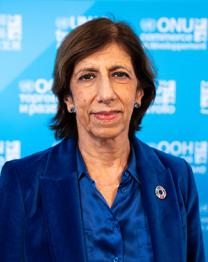
Teresa Moreira is the Head of the Competition and Consumer Policies Branch, Division on International Trade and Commodities at UNCTAD. She joined UNCTAD in 2016 and previously served as the Consumer Director-General of Portugal and as a Member of the Board of the Portuguese Competition Authority when it was first created. She also served as Portugal’s Director-General and Deputy Director General for International Economic Relations and held senior positions at the Directorate-General for Competition.
Teresa worked for over 20 years as a Teaching Assistant at the Faculty of Law of the University of Lisbon in the areas of International Economic Law and European Law, as well as European Competition Law and European Economic Law at the graduate level.
Teresa holds a degree in Law and a master’s degree in European Law (European Competition Law) from the University of Lisbon, Portugal.
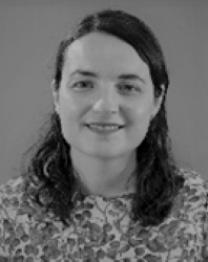
Sofía Boza is the Ambassador of Chile to the WTO, WIPO, UNCTAD, and the ITC since July 2022. She co-coordinates the Joint Statement Initiative on Investment Facilitation for Development at the WTO; in 2023 she chaired the WTO Working Group on Trade and Technology Transfer; and in 2024 the WTO Council for Trade-Related Aspects of Intellectual Property Rights (TRIPS). Previously, she was associate professor and head of the Department of Rural Management and Innovation at the University of Chile, and professor at its Institute of International Studies, as well as external evaluator for the Budget Office of the Chilean Ministry of Finance.
She holds a bachelor’s degree in economics (Honors) from the University of Seville, a professional title in Commercial Engineering from the University of Chile, and a master’s in Economic Development and Public Policies and a PhD in Economics from the Autonomous University of Madrid.
Anita Gurumurthy is a Founding Member and Executive Director of IT for Change, where she leads research on the platform economy, data and AI governance, democracy in the digital age, and feminist frameworks on digital justice.
Anita actively engages in national and international advocacy on digital rights and contributes regularly to academic and media spaces. She serves as advisor and expert on various bodies including the United Nations Secretary-General’s 10-Member Group in support of the Technology Facilitation Mechanism , the Paris Peace Forum’s working group on algorithmic governance, Save the Children’s ICT4D Brain Trust, and Minderoo Tech & Policy Lab ‘s Board.
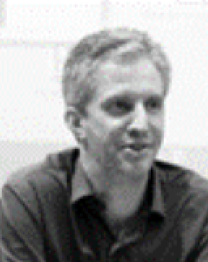
Christian Volpe Martincus is Principal Economist at the Integration and Trade Sector of the Inter-American Development Bank. Christian has expertise in international trade, foreign direct investment, and regional integration and has advised governments in both Latin America and the Caribbean and OECD countries on these matters. He previously worked for the Ministry of the Economy of the Province of Buenos Aires and was advisor at the MERCOSUR Commission of the National Representatives Chamber in Argentina.
At the IDB, Christian has been working on the impacts of trade and investment facilitation and promotion policies, the effects of trade and multinational production on sustainability, and the implications of digital technologies for trade and investment, among other topics.
Christian has a PhD in Economics from the University of Bonn, and is CESifo Research Fellow, Associate Editor of the Review of International Economics, and member of the Editorial Board of the World Trade Review.
Simonetta Zarrilli is the chief of the Trade, Gender and Development Programme of the United Nations Conference on Trade and Development (UNCTAD), a programme she launched in 2010 and has been leading since. Under her leadership, the Programme provides analytical, policy and capacity-building support to member countries on the gender implications of trade policy.
Prior to leading this work area, Ms. Zarrilli worked on several trade and development related topics and carried out analytical, intergovernmental and technical cooperation activities in those areas.
Ms. Zarrilli was educated in law and international relations at the Università degli Studi di Siena in Italy, at the College of Europe in Belgium, at the Université de Strasbourg in France and at the University of Dundee in Scotland.
Caitlin Kraft-Buchman is CEO/Founder of Women at the Table, a growing global CSO based in Geneva – and the first organization to focus on systems change by helping women gain influence in sectors that have key structural impact: economy, democracy and governance, technology, and sustainability.
Women at the Table exposes the systematic exclusion of women in defining the rules – and pinpoints strategic changes to laws, regulations and norms to achieve gender equality and strengthen democracy. Caitlin curates a global International Geneva convening on Gender & Cities, notably the Smart Feminist City, which brought Women at the Table to its newest alliance calling for <A+> Alliance: Affirmative Action for Algorithms. She is also one of three co-founders, with the former Director-General of the UN in Geneva, and former US Ambassador to UN in Geneva, of International Gender Champions (IGC) a leadership network of female & male decision-makers to break down gender barriers for system change. It includes hubs in Geneva, New York, Vienna, Nairobi, and The Hague, and counts 200+ Champion heads of organizations including the Secretary General of the UN, heads of the WTO, ILO, WHO, ITU, WIPO, ISO, Perm Reps, Civil Society.



